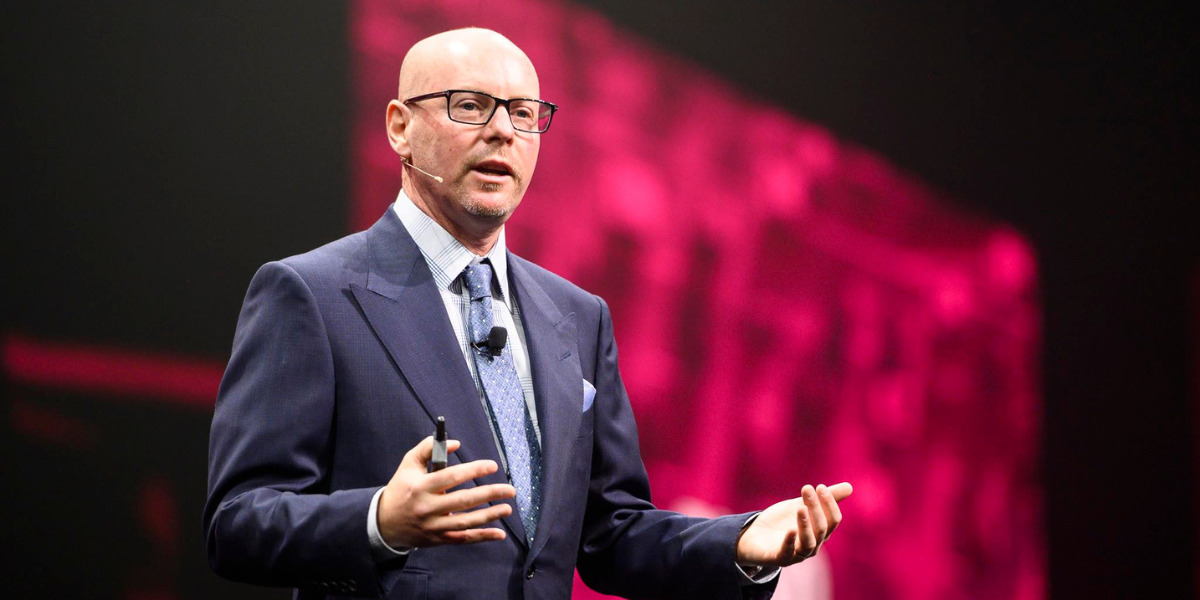Girish Mathrubootham was a successful corporate guy, following all the rules. He started out as an engineer at a software development company and worked his way up to VP of Product Management over the course of 10 years. He had two kids, a mortgage, and was leading a pretty typical life.
Then a bad customer service experience changed everything.
In early 2010, after spending some time working in Austin, Texas, Mathrubootham decided to return to his hometown of Chennai, India. An experience during this move became the catalyst for building the SaaS-based help desk empire, Freshdesk, which now employs nearly 1,000 people across five countries.
As part of his move home, Mathrubootham shipped his 40-inch television to Chennai. The television arrived broken, so Mathrubootham contacted the company that insured his shipment. He kept up a ceaseless round of correspondence for more than five months, the kind we’re all so familiar with, but his insurance remained unpaid.
Frustrated, Mathrubootham created a post on R2IClubForums, a website for people returning to India, and called out the insurance company for their lack of response. Within a day, the post had not only gained the attention of many other forum members, but also of the insurance company’s president, who publicly apologized for Mathrubootham’s experience and quickly paid his claim.
Mathrubootham was empowered by the experience. “I was able to take on a brand in an online forum and the brand was forced to do the right thing. I was no longer the weak customer. I had social power,” Mathrubootham says.
He began to see the same type of posts popping up on other social media sites like Facebook and Twitter. Dissatisfied consumers, frustrated by a lack of response through traditional help desk channels, were taking their voices to social media.
A Fresh Take on an Old Problem
While working in the corporate world, Mathrubootham had built four different help desk platforms. His own experience using a social media forum to resolve his complaint made him realize the need for a new type of solution in the space—a help desk that not only tracked complaints submitted via email and phone but also those that come through social media channels.
In a moment of kismet, Mathrubootham read a post that changed his life. Zendesk, a help desk software startup, had just raised its prices—for some users by more than 300 percent—and initially did not grandfather in existing customers.
Customers were furious, and as Mathrubootham scrolled through the comments, the idea for his own, new brand of help desk was rolling around in his mind. Then he read a comment on Hacker News along these lines: “It just shows that someone could come in and build the right product and take all of Zendesk’s customers away.” Reading that comment was “like a slap in the face—this is my time to do it!”
Fast-Tracking Funding
Mathrubootham approached a colleague and friend to build Freshdesk with him. Together, they built a team of six over the next few months.
From 750 square feet of office space, the team created the first version of Freshdesk in nine months. To spur interest, Mathrubootham published a post on Hacker News. The post told the story of his decision to quit his high-paying job and join the world of entrepreneurs based on a Hacker News comment.
The post went viral and Freshdesk gained the attention of top-tier venture capital firms. Within months, they received offers for investment from several firms, but a million-dollar term sheet from Accel proved to be irresistible.
That first investment gave the Freshdesk team a serious confidence boost. “Somebody external trusted us with a million dollars. We have to be onto something,” Mathrubootham says.
No Such Thing as Bad PR
Riding high on their success, Freshdesk announced their funding on Twitter on December 1, 2011. The next day, they were attacked by a respected industry analyst who claimed that their product name was a ripoff.
Not to be dissuaded, Mathrubootham created a site, ripoffornot.org in which he posted the results of his investigation into the attack. As it turns out, he posted, not only was the Twitter attacker a paid blogger for the competition, he brought in the firepower of the competitor’s CEO to further discredit the Freshdesk team.
The post on ripoffornot.org went viral and the Twitter community came out in defense of Freshdesk. “The whole world was supporting us. It turned into a phenomenal PR moment,” Mathrubootham says.
Thanks to this moment, Freshdesk gained even more social real estate, putting their name at the top of many VC lists. To date, the company has raised $149 million in venture capital and continues to receive offers from some of the most highly recognized VC firms, including Tiger Global and CapitalG.
Powering up a Team
Chennai, India, back then was not known for its startup ecosystem. In 2010, the city had no shared office spaces and no incubators. With good reason, the city wasn’t very popular among top investors.
However, the competition for talent was low and Mathrubootham began hiring the smartest programmers he could find. “The first 70 programmers we hired weren’t familiar with Ruby on Rails (the language on which Freshdesk is built) prior to joining Freshdesk.” But Mathrubootham believes “in hiring smart people and finding their passions and talents, then mapping them to a goal and letting them grow.”
As a leader, Mathrubootham does not micromanage teams or conduct status checks. Instead, he takes an empowering approach. He believes in telling people what needs to be done and then giving them the tools and the space to figure out how to get it done.
Mathrubootham’s leadership style is rooted in Marcus Buckingham’s book, First Break All the Rules. The book taught him the difference between skills, knowledge, and talent. Skills and knowledge are teachable but talent in inherent. Mathrubootham conducts open-ended interviews with potential candidates to discover their true talent instead of relying on academic achievements. At Freshdesk, there are engineering and biotech majors working in sales and marketing roles. “You can’t put in what God intentionally left out,” Mathrubootham says.
Now headquartered in San Bruno, California, Freshdesk still has its largest development center in Chennai, India and other offices in Sydney, London, and Berlin, with nearly 1,000 employees.
Reclaiming the Future
Is there anything that Mathrubootham doesn’t have now that he has found such success? Yes. Time. “Building a company is like building a product. You have to focus on every aspect, and as the CEO, that is what I have to do,” Mathrubootham says. That level of focus keeps Mathrubootham jumping from one meeting to the next and takes him away from what he really loves: product development.
“I love sitting around discussing UI/UX,” he says. Mathrubootham hopes that his recent chief of staff hire will allow him to reclaim more of his time so that he can spend it exercising his own true talents. Until then, he will just have to be satisfied with 100,000 happy customers and $149 million in venture capital.
1 + 2 + 3 = SaaS Success
What advice does the founder of one of the largest SaaS platforms have about building a product in today’s environment?
1. Understand that all of the major categories of SaaS products are established. “The last new category, marketing automation software, was created in 2006.” That was 10 years ago and there haven’t been any new categories since.
2. Understand that the enterprise world is divided into two groups: business users and IT users.
3. Understand new technology.
Mathrubootham advises new entrepreneurs looking to enter the SaaS space to investigate the available categories, pick one, and then understand the users in that category. Finally, take a look at technology solutions that have been developed since the last major player entered the category. Use that new technology to provide a solution in a new way.
AUTHOR = Avi Valentine is a freelance writer who thrives on creating epic pieces for businesses looking to make their mark in a content-driven world. A recipient of the Charles F. Brooks Award for Excellence in Technical Writing, Avi enjoys telling the world about exciting people, products and businesses.
















